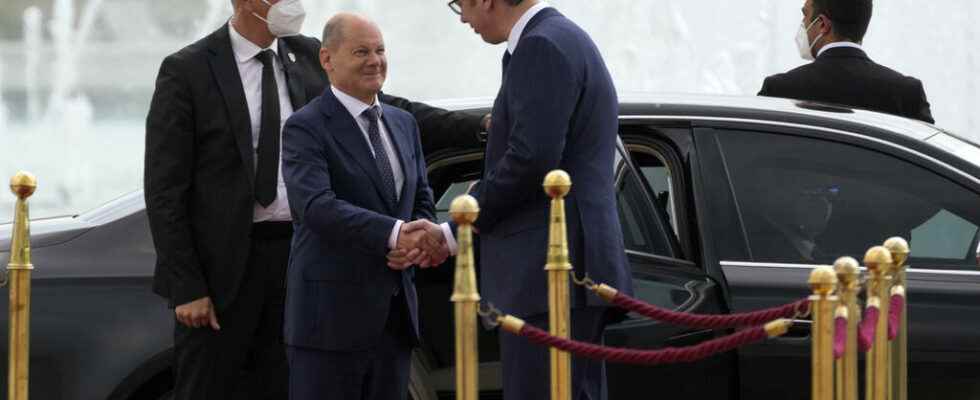Five countries in two days. It is a diplomatic mini-marathon, which Olaf Scholz has been doing since Friday June 10 in the Balkans. A visit that echoes the Russian invasion of Ukraine. The German chancellor does not want the region to become an area of influence for Moscow.
With our correspondent in Berlin, Pascal Thibault
It is a Gordian knot of many issues that must be resolved. Olaf Scholz is aware that it will take time.
First of all, a state like Serbia, which has European ambitions, must apply the sanctions against Russia.
President Vučić replied curtly, believing that his country was not reacting to the pressures and threats. A remark that also applied to Belgrade’s refusal to recognize Kosovo.
Chancellor Scholz made it clear during the first stage of his trip to Pristina, in Kosovo, that it was unthinkable that two countries which do not recognize each other would become members of the European Union.
Olaf Scholz is going to North Macedonia and Bulgaria this Saturday. Here too, another blockage must be resolved, namely Sofia’s veto of a European perspective from its neighbour.
The Chancellor, who has been active on these issues for several weeks, wants to organize a regional conference on the Balkans in the fall in Berlin.
Germany urged the countries of the region to redouble their efforts to strengthen their European perspective.
Olaf Scholz also wants this option to be supported more vigorously by the Twenty-Seven, so that they do not tarnish their credibility, if potential EU membership for the Balkan states is perceived by them as a empty promise and a dead end.
►Read again: Olaf Scholz in Vilnius to discuss security with Lithuania, Estonia and Latvia
